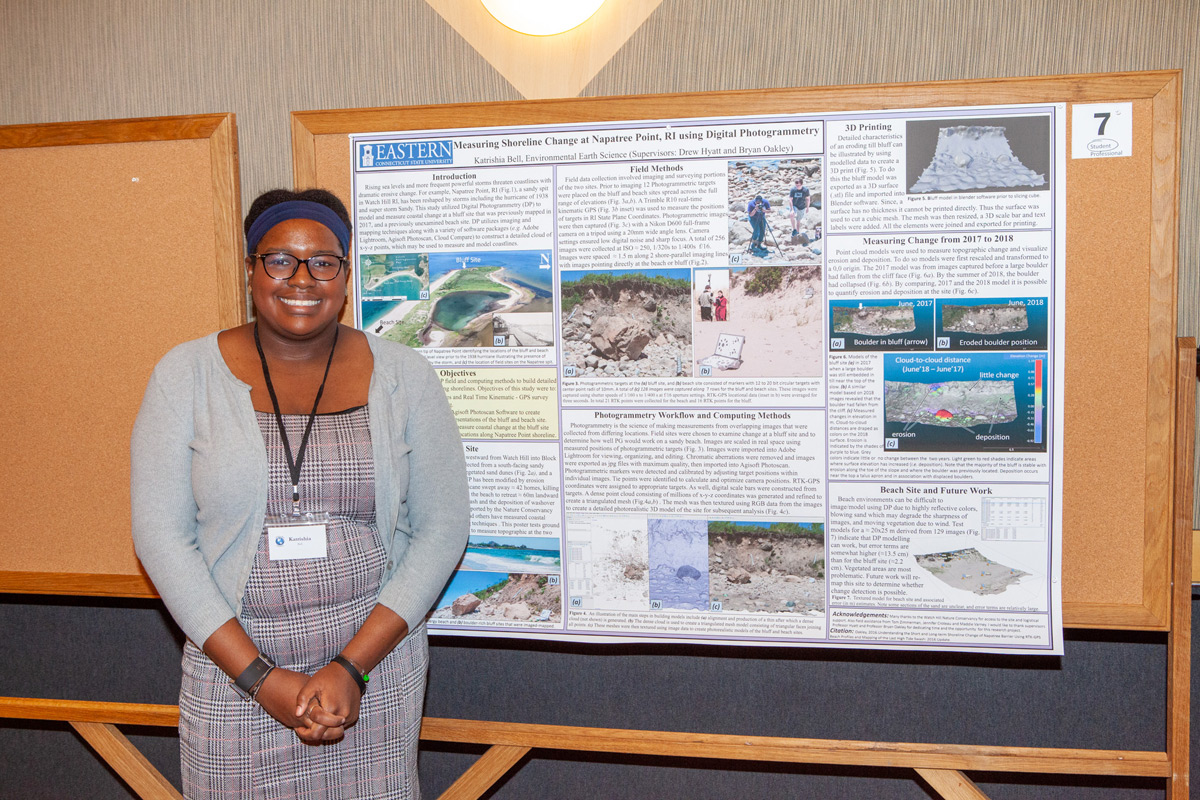Geographic Information Systems
Students in the Geographic Information Systems (GIS) minor learn to store, analyze and display spatially oriented data to improve decision-making. Environmental scientists use GIS for applications such as environmental impact analysis, hydrological modeling and biodiversity studies.
Required Common Core Courses (38-39 credits)
Level L1 Data Science Foundation
- MAT 243 Calculus I with Technology
or MAT 195 Calculus for Business/BIS/Economics
- MAT 216 Statistical Data Analysis
or ECO 215 Statistics for Business/Economics
or MAT 315 Applied Probability and Statistics
(or an approved statistics course)
- MAT 342 Explorations in Data Science
- CSC 202 Introduction to Programming and Machine Intelligence
- CSC 203 Advanced Programming for Data Science
- BUS 205 Information Management
- BUS/BIS 305 Business Analytics
- EES 300 Introduction to GIS
- EES 301 Introduction to GIS Laboratory
Level L2 Database Course
- CSC 341 Database and Information Management
or BIS 373 Business Database Management
Level L3 Data Mining/Analytics
- MAT 343 Explorations in Data Analytics
or CSC 305 Data Mining and Applications
or BIS 447 Business Intelligence
Level L4 Stage 2 Writing
- BIS 449 Data Visualization
Level L5 Capstone, Stage 3 Writing, Tier III
- BIS 377 Organizational Website & Database Management
or CSC 450 Senior Research
or LAP 430 Liberal Arts Capstone Colloquium
or other “approved TIII & W3” courses
B.S. Degree with Concentration in Geographic Information Systems (Total: 53–54 credits)
Core plus Required Courses (9 credits)
- EES 342 Advanced Geographic Information Systems with Laboratory
- EES 444 Geospatial Applications Using Remote Sensing
- EES 480/EES 491 Independent Study/Internship in EES with GIS Applications
Electives (6–7 credits)
Select two (unique from core):
- CSC 210/CSC 231 Computer Science and Programming I and II
- CSC 212 Computer Game Design And Visualization
- CSC 305 Data Mining and Applications
- CSC 314 Introduction to Bioinformatics
- MAT 315 Applied Probability and Statistics
- Other approved courses



